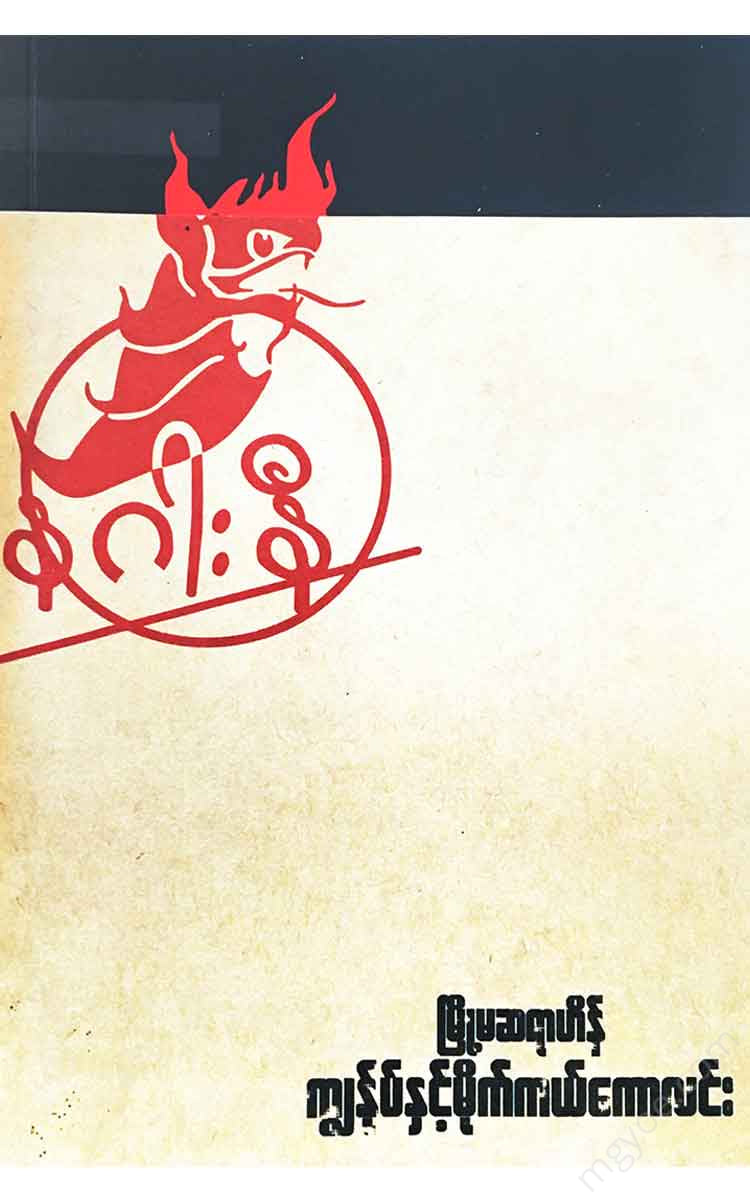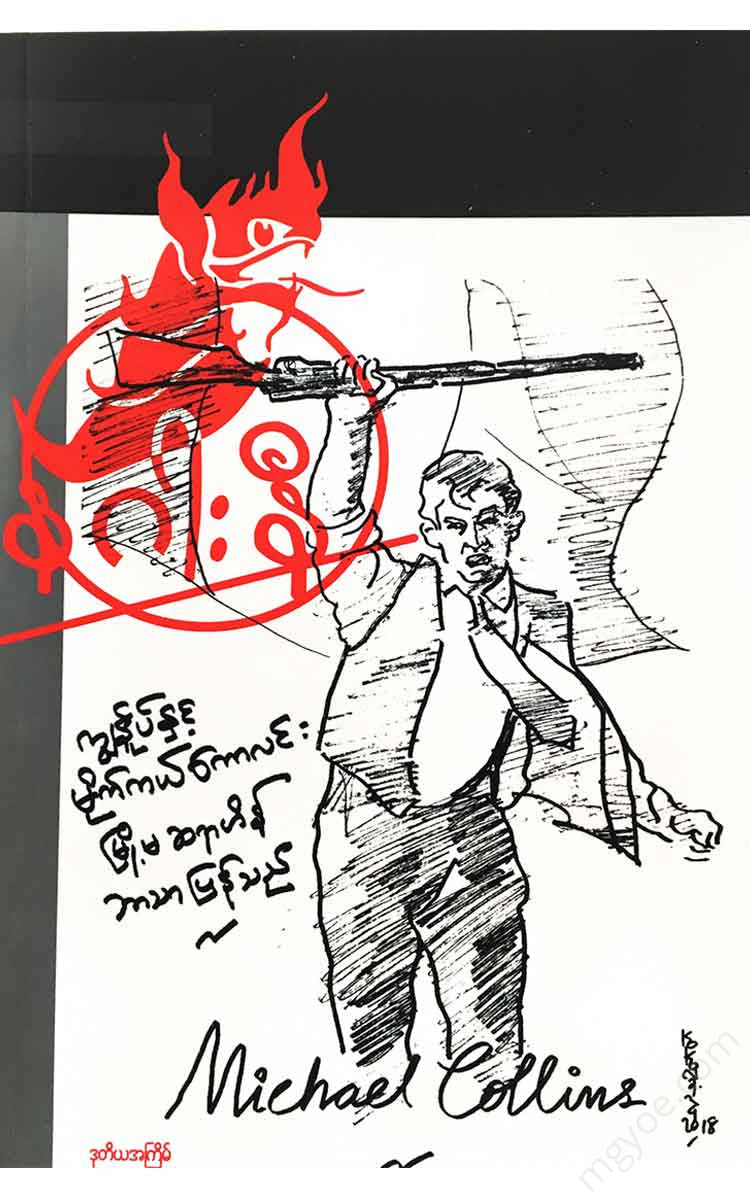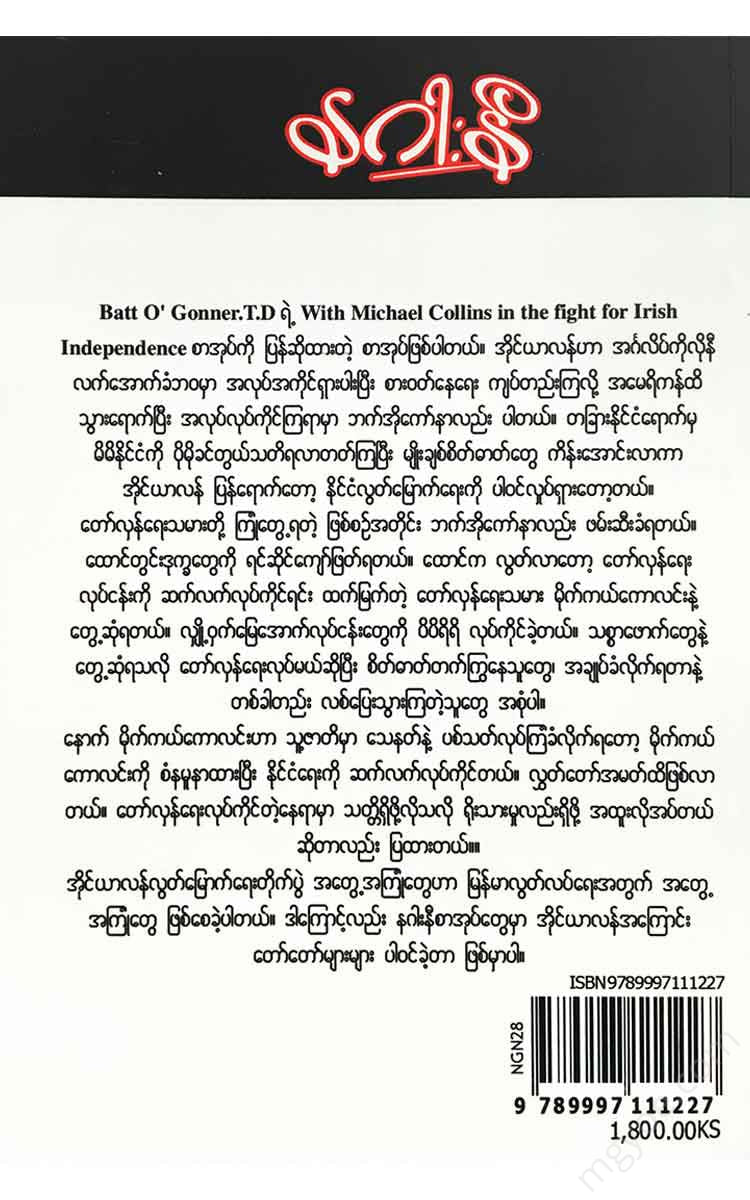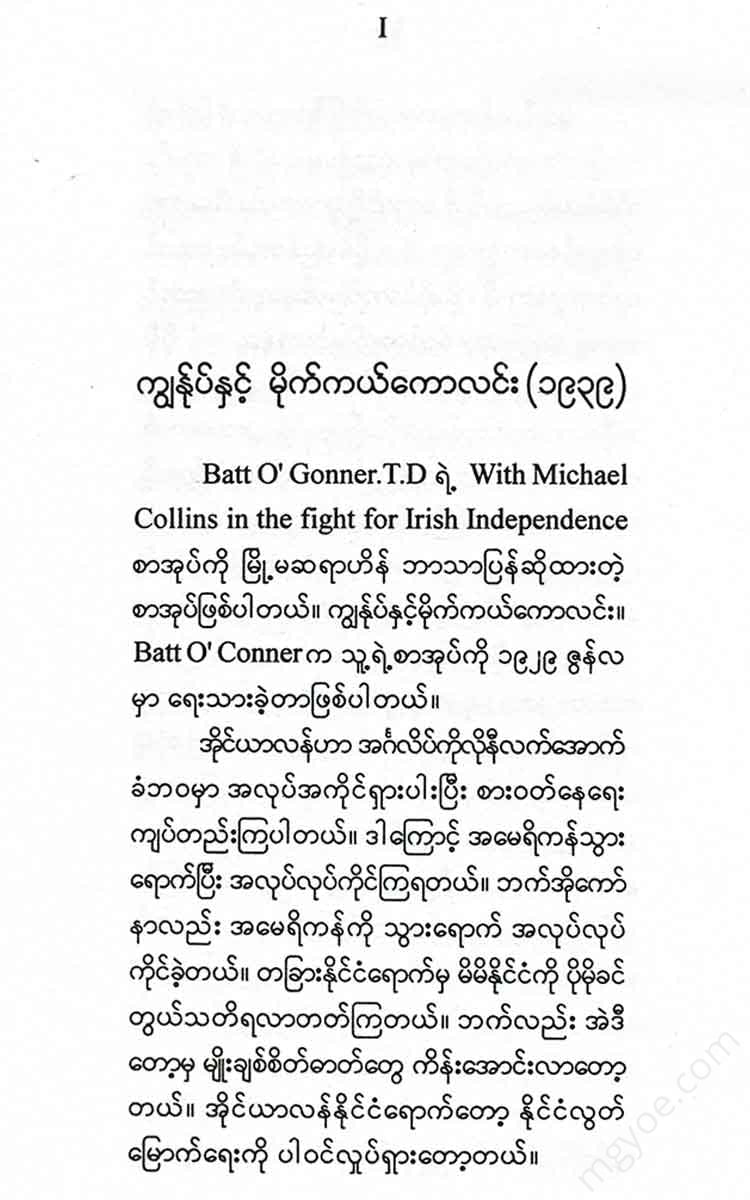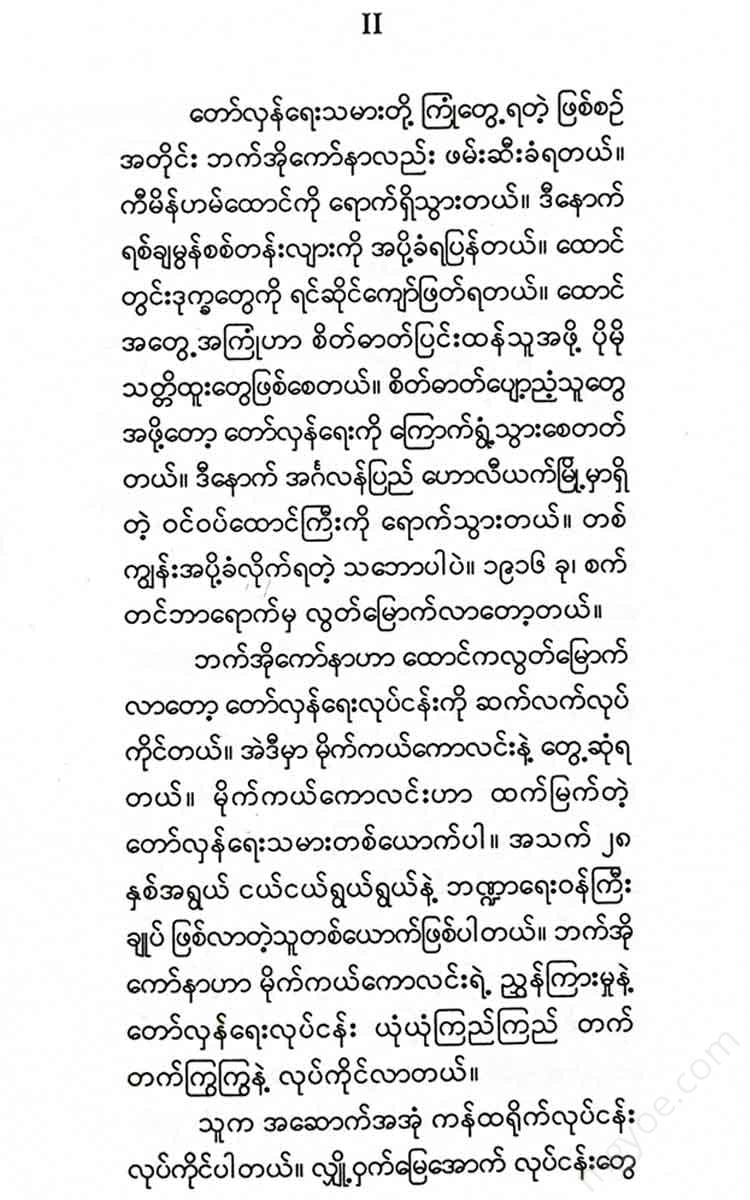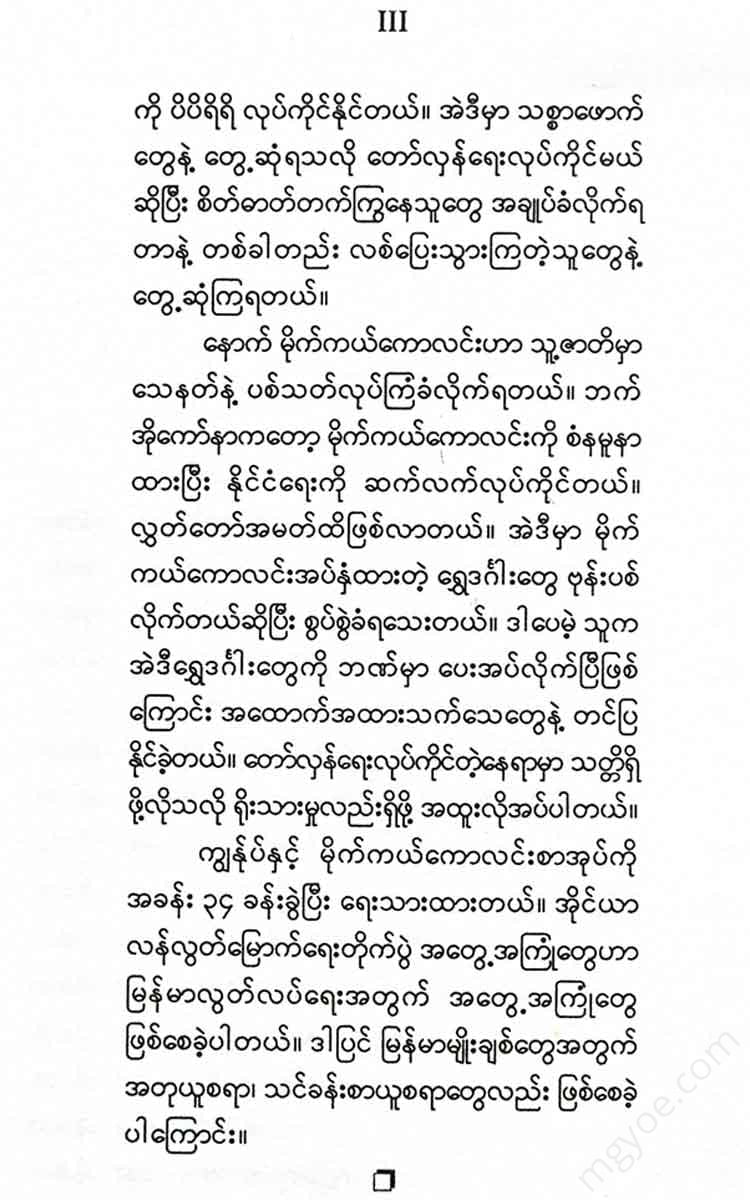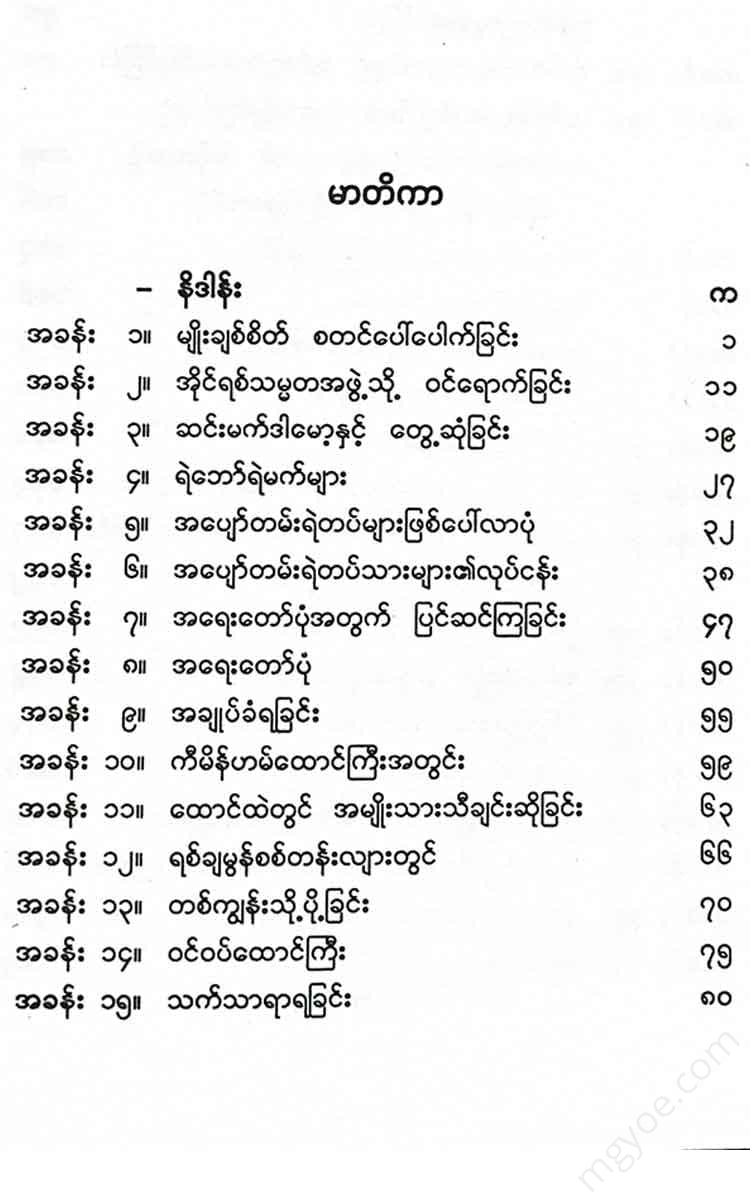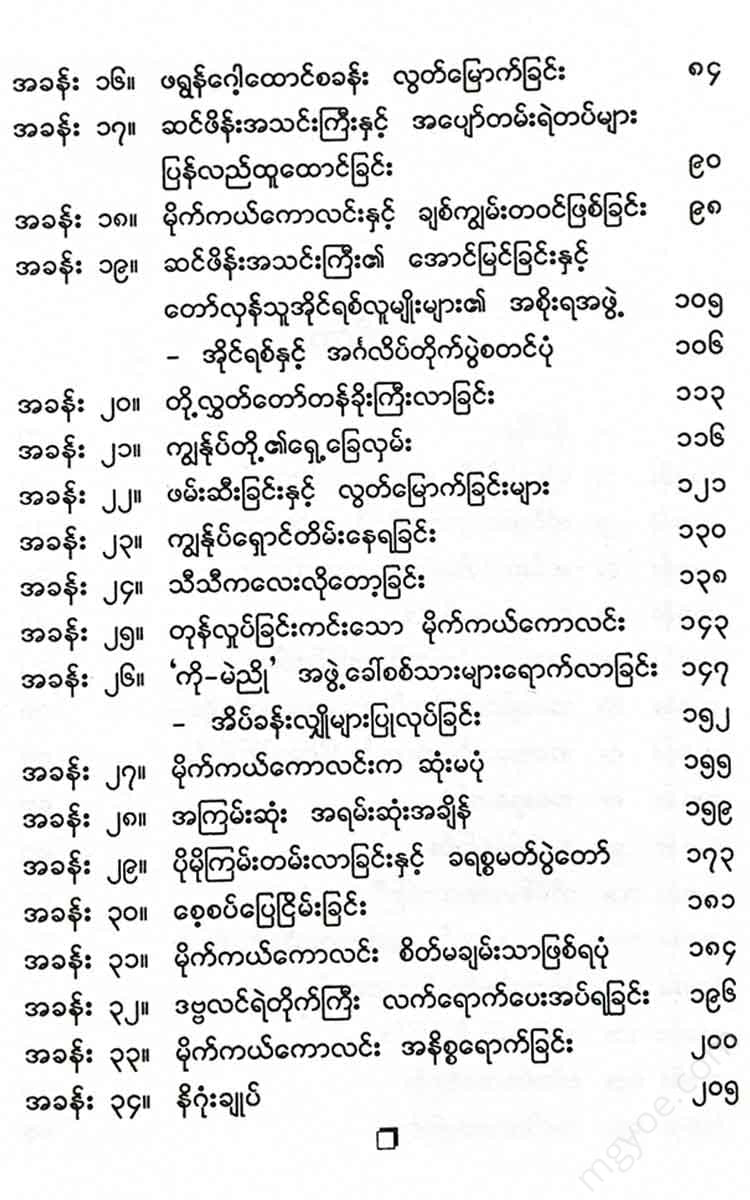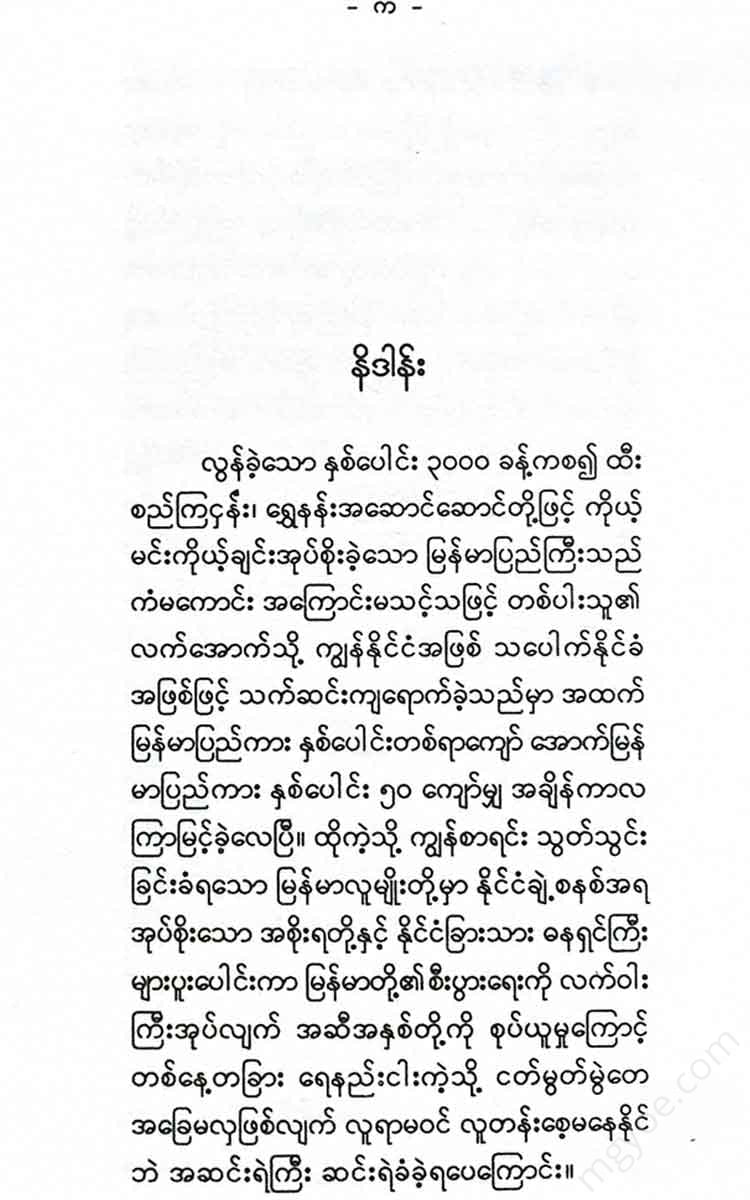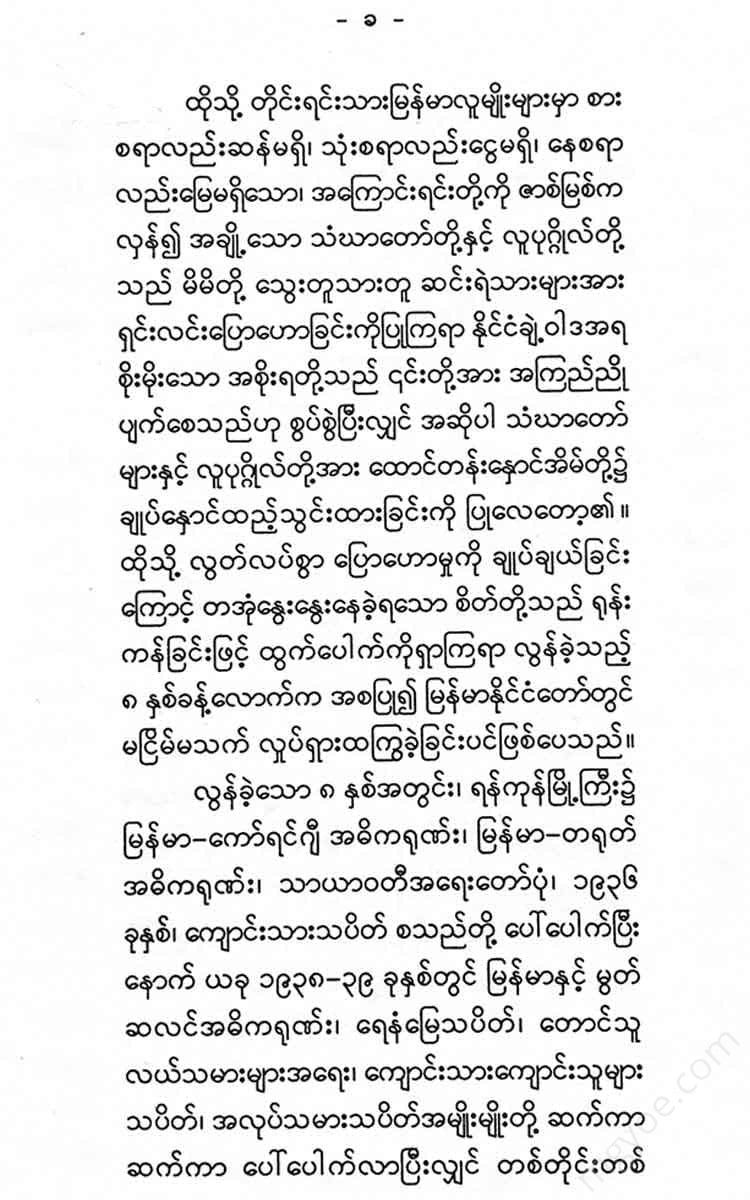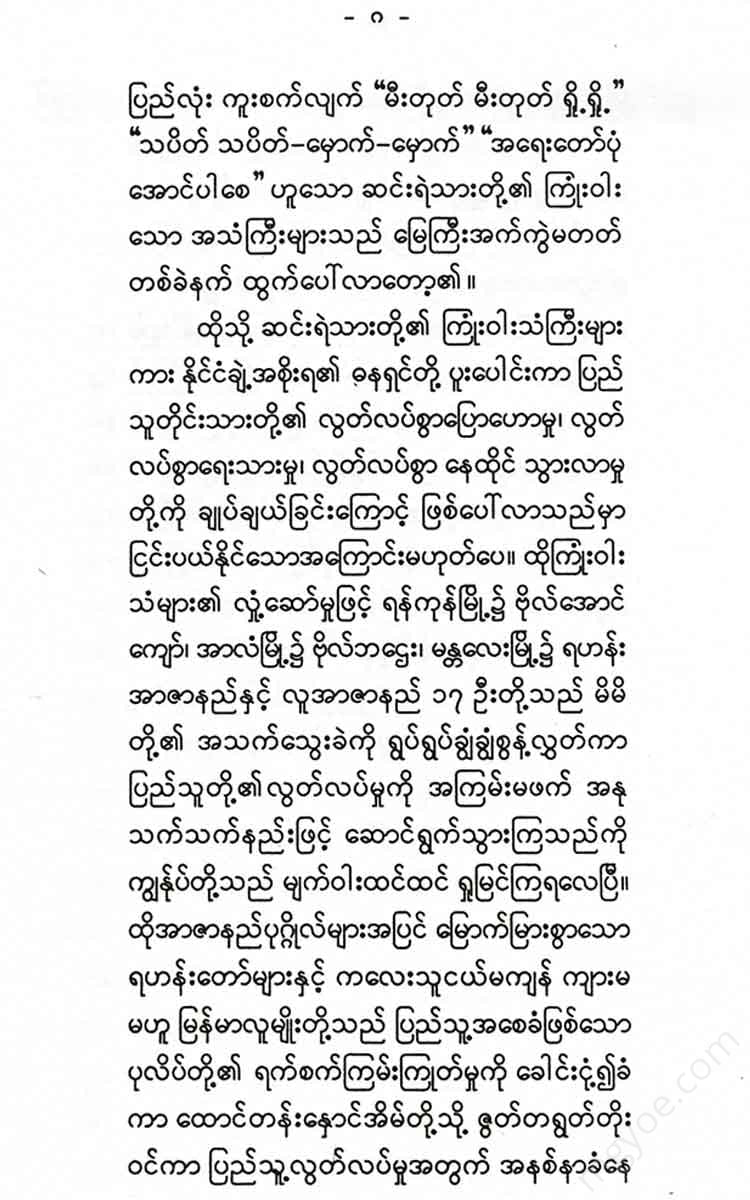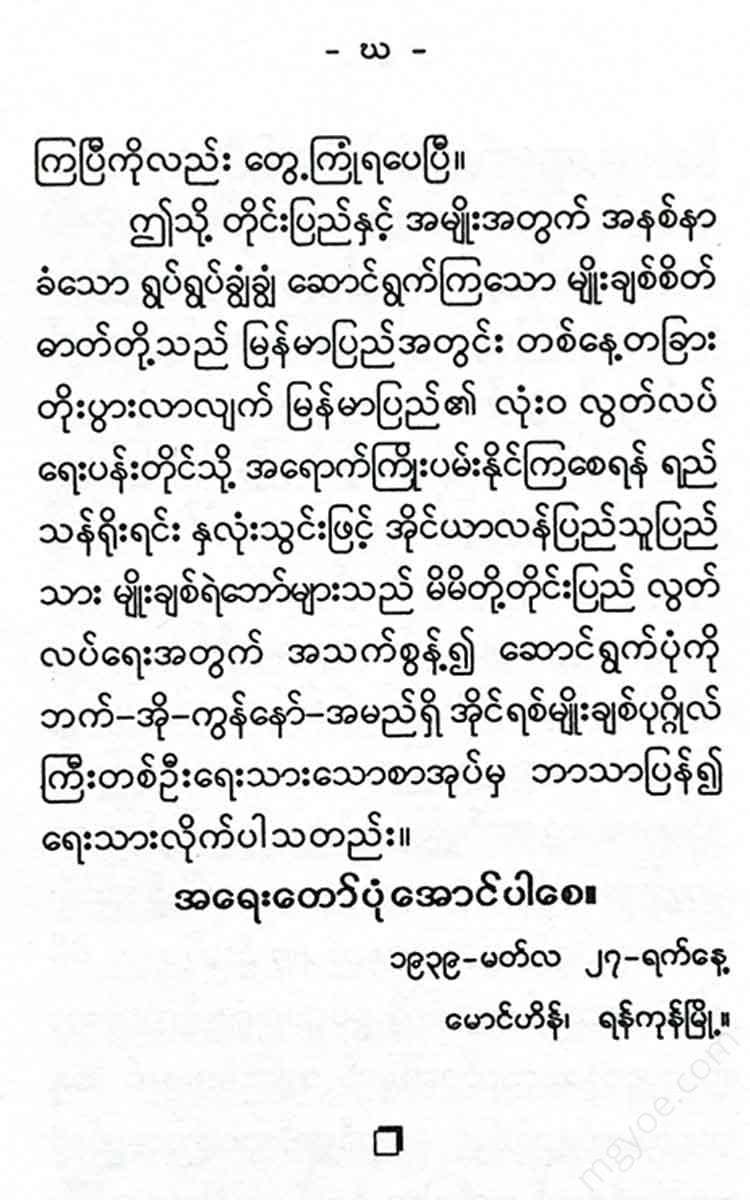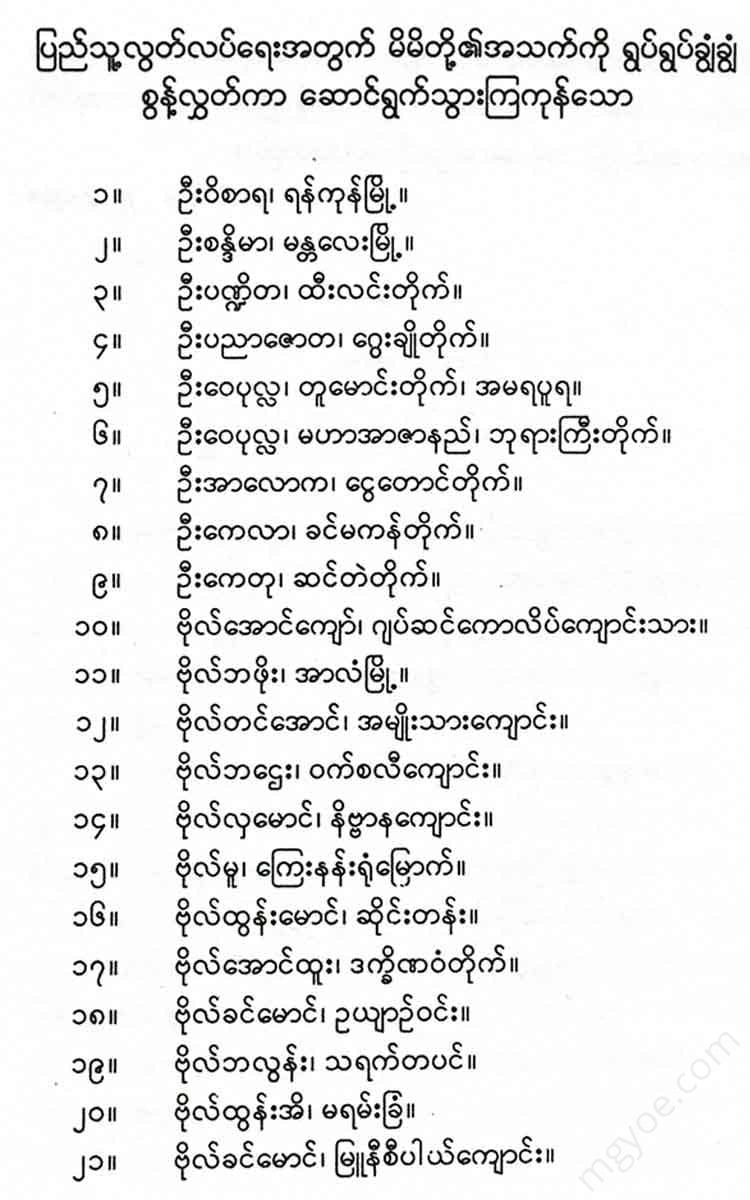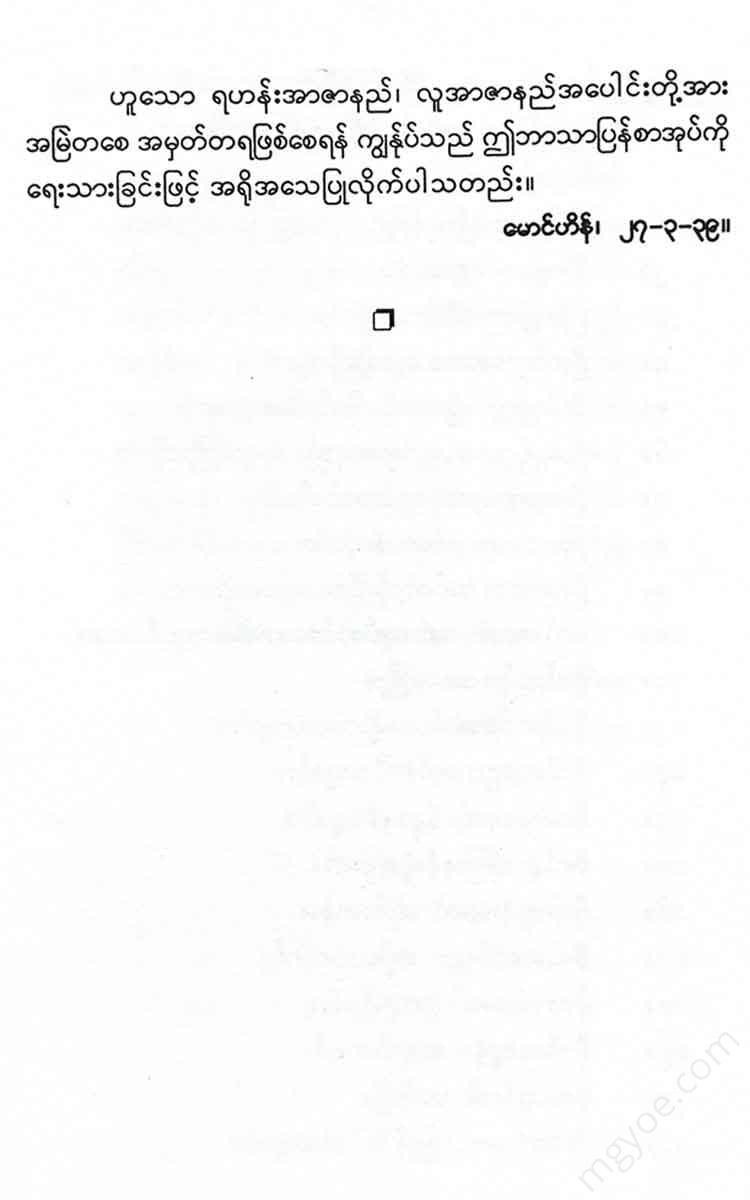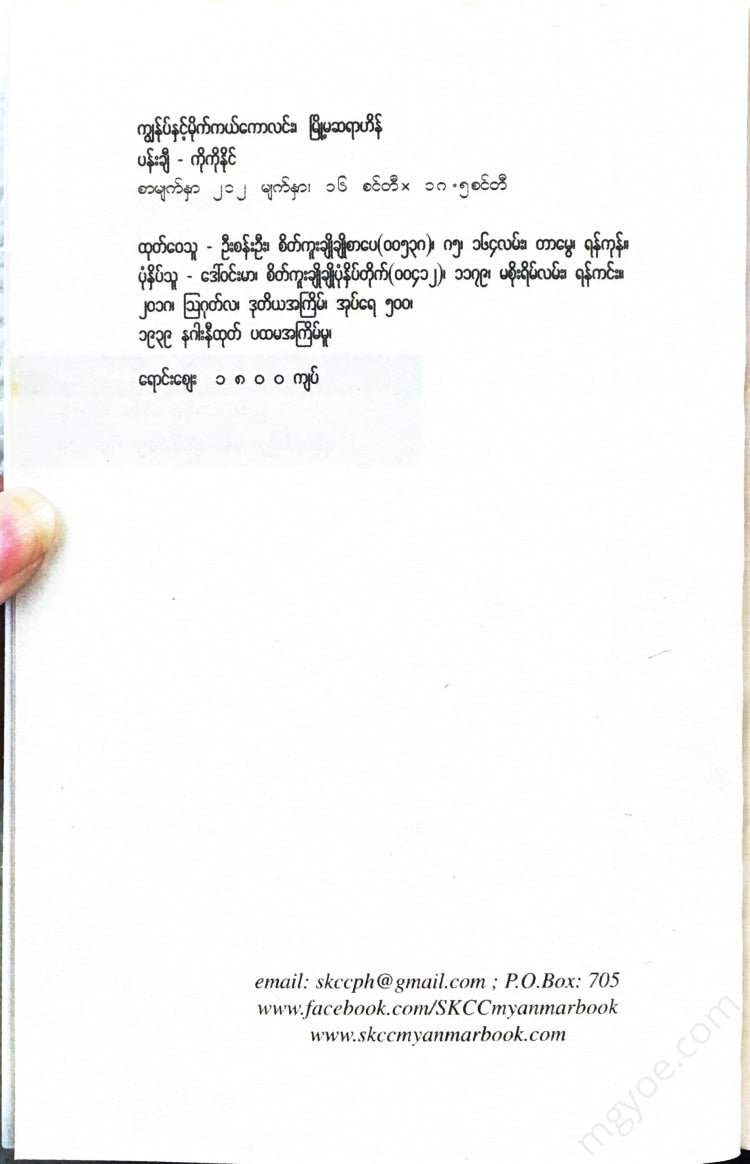စိတ်ကူးချိုချိုစာပေ
Myoma Teacher Hein - Me and Michael Collins
Myoma Teacher Hein - Me and Michael Collins
Couldn't load pickup availability
As every Irishman born in a small village knows, so I have seen, since I was a child, the poverty and hunger of our people under foreign rule.
The patriotism of the peasants living in the village of Brosna was very strong. The bailiffs often evicted villagers who could not pay their taxes, seized their household goods, and seized the cattle of the peasants. The villagers often retaliated against such injustices by boycotting and resisting. I remember a bailiff who came to the office to testify for a defendant and was surrounded by a cavalry called "Scourges". On one occasion, a girl was sentenced to prison for resisting the bailiff when the bailiff seized the goods of a farmer on whom she relied. On another occasion, a farmer was imprisoned for following the rules of the farmers' association, and his neighbors did not live well. They help each other by planting and harvesting crops for their children and wives.
We have seen a steady stream of people leaving our district township for other countries. I have personally witnessed young men and women leaving their parents and relatives with broken hearts and tears, and going to America to earn a living, and having to support themselves financially from different islands and countries. I too, like those young people, had to leave for America, and the events of our group at that time were vividly etched in my mind, like a photograph.
Leaving Ireland did not make us love Ireland any more, but it did make us love it more. When we lived in Ireland, we thought of our country as a part of ourselves. It was as satisfying to look upon the beautiful scenery of Ireland as it was to look upon the faces of our parents. Yet we did not at first realize that our love for our country was so strong.
When we were separated from our parents and relatives and arrived in another country, we remembered that the conditions there, no matter how cheerful, were not the place where we were born. There were no groups to socialize with. I had become bored and bored while looking at the sights I encountered every day while living in America. I imagined the places where I had run and enjoyed myself as a child. I felt ashamed to even speak the everyday words that I had used when I was in Ireland, but I never heard them.
As I reminisced about my childhood, breathing the cool breezes that swept through the green meadows of Ireland, fishing in the clear, cool lakes, and finding the birds nesting in the thickets, I longed to revisit my homeland. I recalled even the ancient, indescribable memories of the old house where I was born.
After spending two years in America, I happened to be in the midst of a St. Patrick's Day festival in the Isle of Man, and I joined in the festivities. I thought of the Irish people who had wandered from one country to another as if they were celebrating their own national festival, and from that day onward, my love for my country was awakened. This love for my country inspired me to return to Ireland.
Two years after his return to Ireland, he joined the "Galilee," a society formed to promote the Irish language. Later, near the grave of a patriot named Woolton, he accepted the letter of the Irish Republican Brotherhood and became a patriot.
On my return to Ireland I was greatly disappointed, as I did not know what our men were thinking about Irish independence. In fact, I was disappointed because I had only looked at the external situation and not considered the internal situation. I was enlightened by the various events that happened. When the great struggle for independence began, the Irish people did not hesitate. They rose up. I saw that the few Irish martyrs who had gone to Ireland were particularly disappointed, and I saw that thousands of Irish women, inspired by the sacrifices of their men, had given up their homes and lives to do their duty in the struggle. Irish men in America also gave generously to the cause of independence. However, when Michael Collins said, “I do not want much of the generous donations that your friends have sent me, but I would be more than satisfied if you would send me a thousand fighters,” only a small group of patriots were able to follow Michael Collins’s lead.
The exiled Irishmen were free to raise their national flags and sing patriotic songs in America. As I have already mentioned, I was pleased to see myself, as an Irishman, among foreigners, in the midst of a great crowd of foreigners. In America we were well-dressed, well-fed, and well-off. We had a taste of freedom. We were very happy to be able to raise our national flag and contribute whatever we could to Irish organizations. In Ireland, however, we were busy working all our time to make ends meet. We were proud of our country, our freedom, and our freedom from our own people. They could not join in the festivities that were held to commemorate it. Only a small group of people had time to reflect on the old cause of Irish independence. Even those people thought deeply about the sacrifices and struggles that had to be made for freedom.
There was another reason why the Irish were so inactive in the affairs of the country. At that time, a group called the Irish Parliamentary Party, which had entered the Parliament formed by the English and was supported by them, was gaining power and ruling the country. The ideology of this group was to work in the face of the English in everything, and to destroy the dignity of the Irish people. The Irish people could no longer care about the independence of their country, and their representatives were only begging the English government for their own interests.
The Irish people are almost without a homeland. After the dissolution of our Parliament in Dublin, the country's representatives went to the Lower House of Parliament in England. That
